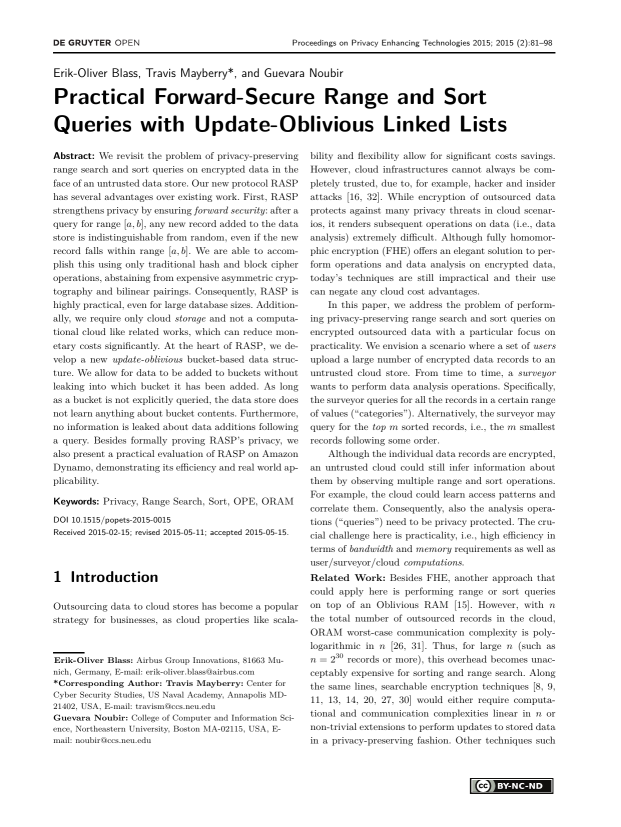Practical Forward-Secure Range and Sort Queries with Update-Oblivious Linked Lists
Authors: Erik-Oliver Blass (Airbus Group Innovations, 81663 Munich, Germany), Travis Mayberry (Center for Cyber Security Studies, US Naval Academy, Annapolis MD21402, USA), Guevara Noubir (College of Computer and Information Science, Northeastern University, Boston MA-02115, USA)
Volume: 2015
Issue: 2
Pages: 81–98
DOI: https://doi.org/10.1515/popets-2015-0015
Abstract: We revisit the problem of privacy-preserving range search and sort queries on encrypted data in the face of an untrusted data store. Our new protocol RASP has several advantages over existing work. First, RASP strengthens privacy by ensuring forward security: after a query for range [a, b], any new record added to the data store is indistinguishable from random, even if the new record falls within range [a, b]. We are able to accomplish this using only traditional hash and block cipher operations, abstaining from expensive asymmetric cryptography and bilinear pairings. Consequently, RASP is highly practical, even for large database sizes. Additionally, we require only cloud storage and not a computational cloud like related works, which can reduce monetary costs significantly. At the heart of RASP, we develop a new update-oblivious bucket-based data structure. We allow for data to be added to buckets without leaking into which bucket it has been added. As long as a bucket is not explicitly queried, the data store does not learn anything about bucket contents. Furthermore, no information is leaked about data additions following a query. Besides formally proving RASP’s privacy, we also present a practical evaluation of RASP on Amazon Dynamo, demonstrating its efficiency and real world applicability.
Keywords: Privacy, Range Search, Sort, OPE, ORAM
Copyright in PoPETs articles are held by their authors. This article is published under a Creative Commons Attribution-NonCommercial-NoDerivs 3.0 license.

